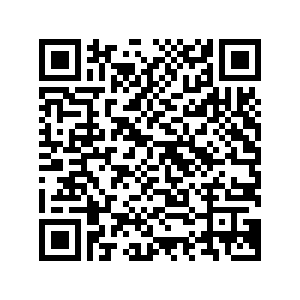by Peter Mertz
DENVER, the United States, April 25 (Xinhua) -- It's never too late to apologize, say Chinese-Americans, who received a heartful apology for an attack 142 years ago on Denver's Chinatown, which wiped it off the Colorado map forever.
"This is a great act of reconciliation, and a prerequisite toward making Denver an equitable city -- we're very excited," University of Colorado (CU) history professor William Wei told Xinhua Friday regarding Denver Mayor Michael Hancock's official apology earlier this month to a small crowd of Asian-Americans at Denver's CU campus.
APOLOGY FOR "SHAMEFUL CHAPTER"
Called "Denver's darkest and most painful moment" by the late Colorado history professor John Yee, the "1880 Race Riot" was an all-out attack by some 3,000 armed and violent white men against Denver's peaceful Chinatown community, where buildings were burned and dozens of people assaulted and injured. A young Chinese man named Look Young was beaten to death and then hung by the neck from a lamp post for all to see.
Young's murderers were never tried or prosecuted, and reparations were never afforded to the Chinese who were maimed or injured or had businesses torched to the ground. Until now.
"We know that to heal our community we must be willing to face and address things we have avoided, apologize for wrongs we have committed and follow through with actions that are true to ongoing positive change," Hancock said on Twitter this week. "This is just the beginning."
At a ceremony eight days ago, Hancock apologized directly to descendants of Denver's 19th century Chinatown, destroyed in a hate-filled act of violence that he called "a shameful chapter in Colorado history."
In 1880, Denver's Chinatown, where many railroad workers migrated after the transcontinental railroad was finished, was a bustling community filled with some 500 first-generation Chinese and their families who had worked hard, built businesses and carved out a life in an area just north of downtown Denver, today a district called Lodo.
Today, Lodo is Denver's most popular downtown area, where dozens of upscale, trendy restaurants and sports bars are located. City streets are filled in summer by revelers after Colorado Rockies baseball games played at nearby Coors Field.
"While the city cannot erase past injustices against Chinese immigrants and the Asian American and Pacific Island communities, the city owes them a long-overdue apology," city officials wrote in an open letter to the Asian community.
"An admission of the wrongs committed and its failure to correct them is a first step towards recognizing and honoring their contributions and can contribute to racial reconciliation," the letter said.
"It will also serve to educate those who are ignorant of this shameful chapter in Colorado's history and hopefully bring some closure to the families whose loved ones suffered racial violence and abuse," it noted.
POSITIVE STEP AGAINST ANTI-ASIAN HATE
Two women whose families were traced back to this sad time were presented Hancock's signed letter of apology and commemorative gold coins as part of the CU ceremony hosted by Colorado Asian Pacific United (CAPU).
"My mother graduated from Denver Women's School, which is now the University of Denver. Even with a degree, she was refused a job," said Linda Jew, whose grandfather worked on the transcontinental railroad before settling in Denver.
Jew told the media that she remembers people throwing rocks at her and her sister when they were children and other overt acts of racism. "This apology from Denver is very important to me and my family," she said.
Linda Lung, CAPU's head storyteller, jumped for joy when she was handed her signed apology. "This is a wonderful event. Something we can show the next generation and move forward," she told reporters.
The apology is even more apropos and timely, event leaders said, due to the rampant rise in racist acts of violence against Asian-Americans in the past few years, with a 339 percent rise in anti-Asian hate crimes last year compared with 2020, according to data published by the Center for the Study of Hate and Extremism, a U.S. nonpartisan research and policy center.
CAPU Vice Chair Joie Ha said the city's recognition is a positive step toward acknowledging Denver's racist history.
The most unfair irony of the Denver 1880 riot was the federal government's response. Instead of condemning the unprovoked murderous attack, the U.S. Congress passed the Chinese Exclusion Act of 1882, which "suspended Chinese immigration for ten years and declared Chinese immigrants ineligible for naturalization," History.com reported in 2019.
"The event was particularly significant because Denver is the only American city from the interior west" to make such a noble gesture ...," CU's professor Wei told Xinhua Friday.
Although San Jose, San Francisco and Los Angeles have issued similar apologies, Denver's small Asian population indicates the Mile High City "did it for the right reasons," Wei noted.
"California's AAPI (Asian American Pacific Islander) population is over 30 percent, whereas Denver's AAPI population is less than 4 percent, said CAPU board member Dr. Soon Beng Yeap, who described Denver's apology as "a momentous milestone for Colorado's Chinese-American community."
"We hope Denver sets a precedent for other cities outside the west," Wei said. ■
